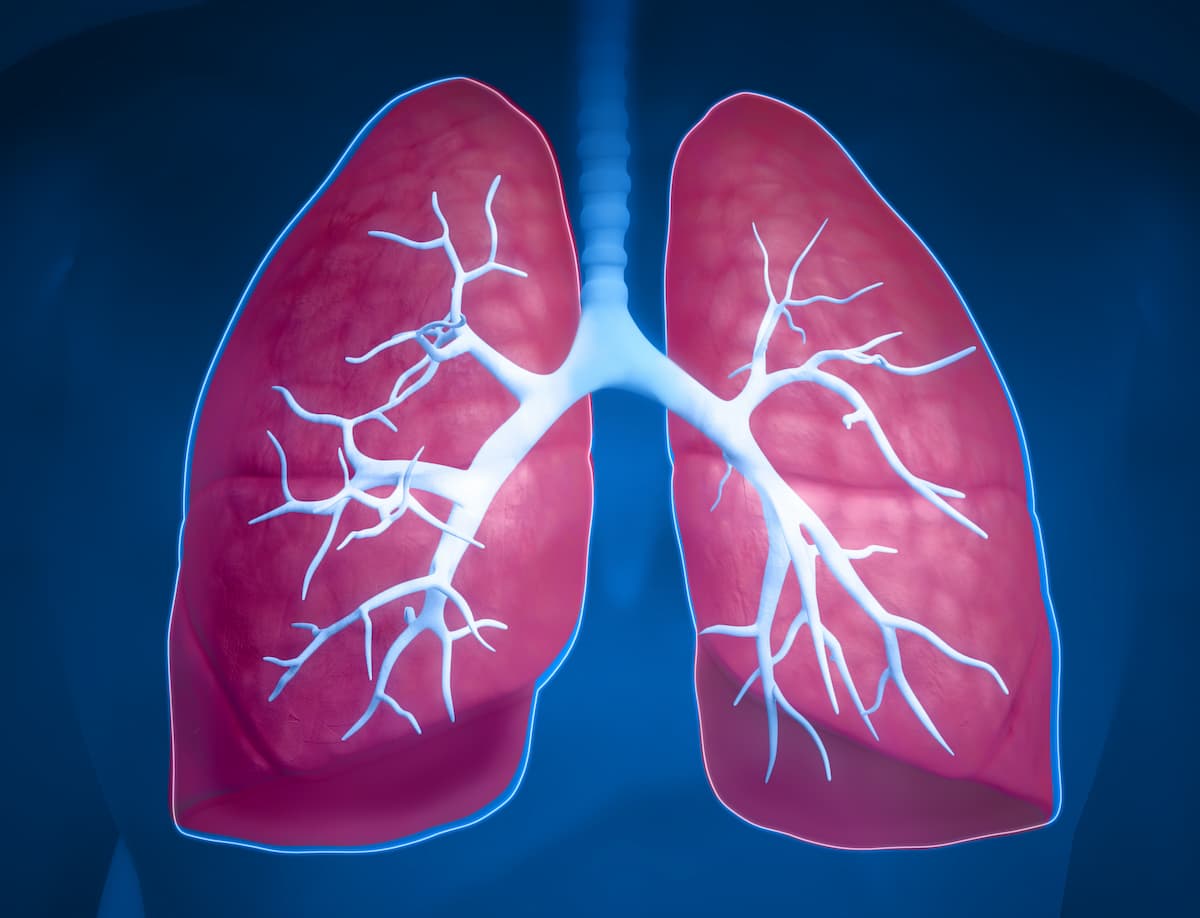NVL-655 Receives FDA Breakthrough Therapy Designation in ALK+ NSCLC
Data from the phase 1/2 ALKOVE-1 trial support the breakthrough therapy designation for NVL-655 in advanced ALK-positive non–small cell lung cancer.
Supporting findings for the breakthrough therapy designation came from the phase 1/2 ALKOVE-1 trial (NCT05384626).

The FDA has granted breakthrough therapy designation to the investigational ALK-selective inhibitor NVL-655 as a treatment for patients with locally advanced or metastatic ALK-positive non–small cell lung cancer (NSCLC), according to a press release from the developers, Nuvalent, Inc.1
Specifically, the designation supports the use of NVL-655 in patients who have received at least 2 prior lines of ALK tyrosine kinase inhibitors.
Developers designed NVL-655 to overcome resistance that tumors have exhibited towards first-, second-, and third-generation ALK inhibitors. Additionally, the agent’s design may allow it to penetrate the central nervous system (CNS), thereby expanding treatment options for those with brain metastases while avoiding the inhibition of the structurally similar TRK family.
“Today's announcement of FDA breakthrough therapy designation for NVL-655 marks another important milestone for our ALK program and the second breakthrough designation granted to our pipeline of novel kinase inhibitors this year,” Darlene Noci, ALM, chief development officer at Nuvalent, said in the press release.1 “Our team is committed to expeditiously advancing NVL-655 in recognition of the continued need for innovation for patients with ALK-positive NSCLC who have exhausted available therapies.”
Supporting findings for the breakthrough therapy designation came from the phase 1/2 ALKOVE-1 trial (NCT05384626). Developers previously announced preliminary data from the trial in October 2023.2
As of the cutoff of June 12, 2023, treatment with NVL-655 at doses ranging from 15 mg to 150 mg once daily elicited partial responses in 45% (n = 15/33) of evaluable patients. Additionally, the objective response rate (ORR) was 65% (n = 11/17) in those with ALK resistance mutations at baseline and 41% (n = 12/29) in those who received prior treatment with lorlatinib (Lorbrena). Data also highlighted CNS activity with the agent.
Common treatment-related adverse effects (TRAEs) in the trial included nausea (12%), elevated transaminase (12%), fatigue (9%), and constipation (7%). Grade 3 or higher TRAEs included elevated transaminase (n = 2), creatine phosphokinase increases (n = 1), and fatigue (n = 1). Investigators did not identify a maximum tolerated dose at the time of the analysis.
Developers anticipate providing an update from the ALKOVE-1 trial at a medical conference in the second half of 2024.
“We are strongly encouraged by these preliminary safety and clinical activity data from the phase 1 portion of our ALKOVE-1 clinical trial, which demonstrate the potential for NVL-655 to achieve its target product profile of potent and selective targeting of ALK fusions and secondary ALK single and compound resistance mutations, brain penetrance, and the avoidance of TRK inhibition,” Christopher Turner, MD, chief medical officer at Nuvalent, said in a press release on these findings.2
The trial’s primary end points were dose-limiting toxicities and the recommended phase 2 dose in the phase 1 portion as well as ORR and treatment-emergent AEs in the phase 2 portion.3 Secondary end points included duration of response, clinical benefit rate, time to response, progression-free survival, and overall survival.
Patients 18 years and older with histologically or cytologically confirmed locally advanced or metastatic solid tumors with an ALK rearrangement or an activating ALK mutation are eligible for enrollment on the trial. Having adequate organ function and bone marrow reserve is another requirement for enrollment. Those who receive major surgery within 4 weeks of beginning study treatment are not eligible for entry.
Developers announced that they initiated the phase 2 portion of the ALKOVE-1 trial in February 2024.4 Based on alignment with the FDA, the recommended phase 2 dose of NVL-655 was determined to be 150 mg once daily.
References
- Nuvalent receives U.S. FDA breakthrough therapy designation for NVL-655. News release. Nuvalent, Inc. May 16, 2024. Accessed May 17, 2024. https://tinyurl.com/2t3wwfvj
- Preliminary phase 1 dose-escalation data from ALKOVE-1 trial of NVL-655 demonstrated activity in heavily pre-treated patients with ALK-positive NSCLC and an ALK-selective, TRK-sparing safety profile. News release. Nuvalent, Inc. October 4, 2023. Accessed May 17, 2024. https://tinyurl.com/5et9427u
- A study of NVL-655 in patients with advanced NSCLC and other solid tumors harboring ALK rearrangement or activating ALK mutation (ALKOVE-1). ClinicalTrials.gov. Accessed May 17, 2024. https://tinyurl.com/yc496sxa
- Nuvalent initiates the phase 2 portion of ALKOVE-1 clinical trial for patients with ALK-positive NSCLC and other solid tumors. News release. Nuvalent, Inc. February 12, 2024. Accessed May 17, 2024. https://tinyurl.com/y8zmxkp8
Newsletter
Stay up to date on recent advances in the multidisciplinary approach to cancer.